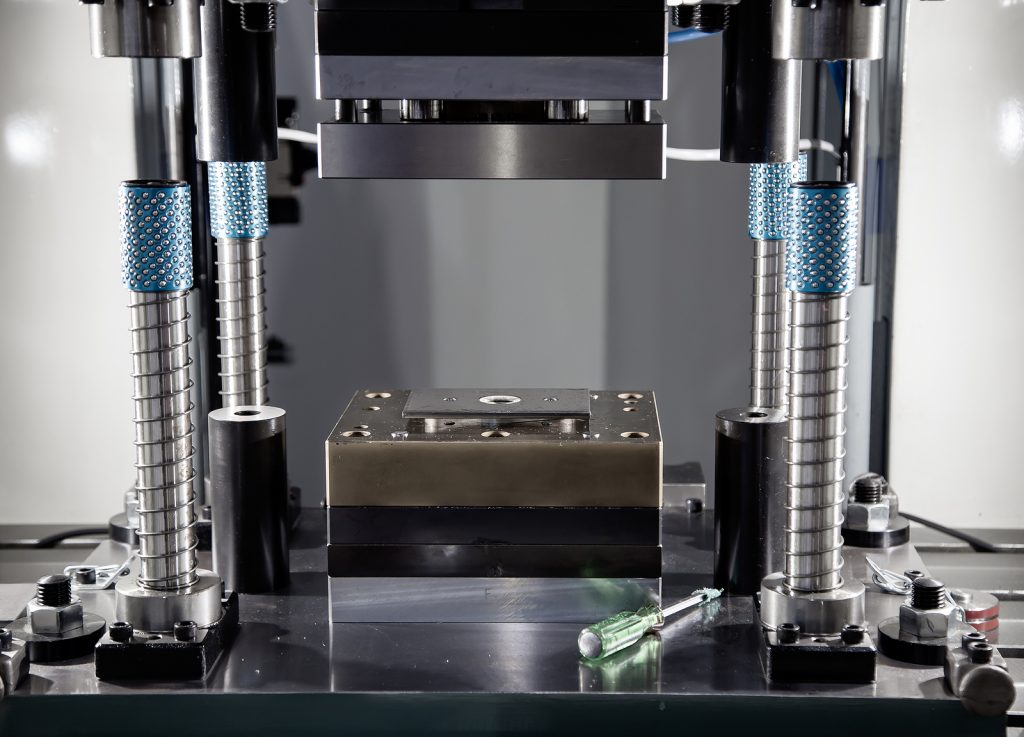Short run stamping refers to the style of tooling design rather than a quantity description. Short run stamping is a style of stamping that uses station dies to manufacture a part. For example: One press will blank and pierce, one press will do a forming operation, and the last one will do a finish forming operation. This process is also known as station to station stamping: raw material and parts move from one stamping location to another rather than having a progressive die.
This procedure yields an finished part with a lower tooling charge usually a one-time NRE (non-recurring engineering) charge. The process is best suited for part quantities of a few hundred to several hundred thousand.
Benefits of Station to Station Stamping
If you’re considering stamping for your component production, there are advantages to the process. A Buchanan Sales rep can walk you through the particulars for your specific project and design, but here are some general benefits:
- Used for small to medium volumes—50 to several hundred thousand pieces.
- Lower tooling price—a one time NRE (non-recurring engineering) charge.
- Lower tooling cost, but the part price will be higher.
- Buchanan’s shops can do up to half inch-thick material depending on the material.
- Capabilities to complete secondary operations of welding and machining on the stamping itself.

